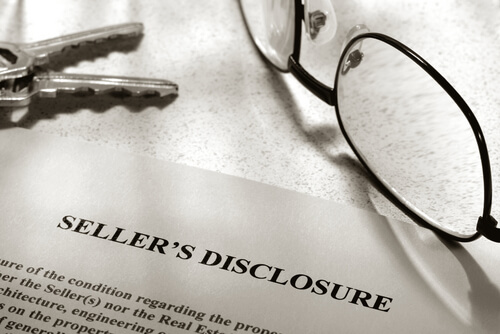Selling property in New York is a complex, multi-step process between buyer and seller. Real estate laws have given both parties legal responsibilities during the transaction and failure to comply with mandatory procedures and disclosures can result in costly legal penalties. One major responsibility of the seller is complying with mandatory disclosures New York sellers must make during the process, which we will examine in more detail.
General Housing Defect Disclosures
A New York seller is required to disclose known housing defects to the buyer in a real estate transaction. Omitting material facts about defects or knowingly making false statements to a buyer results in liability for damages if the omission or falsehood materially affects a buyer’s decision to purchase the property.
Even if the buyer doesn’t request the information, the seller must disclose it. The seller is not legally required to hire a home inspector, so the buyer has a duty to hire a home inspector when deciding whether to purchase the property. The disclosure statement reminds buyers it does not act as a guarantee or a warranty from the seller regarding the property’s condition.
A standard disclosure statement required by the Property Condition Disclosure Act (PCDA) typically addresses:
- General information including age and ownership;
- Mechanical systems and services such as water source, drainage, and utilities;
- Environmental information which covers issues including whether a property is located in a flood plain, if the property contains asbestos or fuel storage tanks, and whether there is knowledge that toxic substances were spilled, leaked, or released on the property; and
- Structural information including roof condition and whether smoke, fire, water, or insect damage are present.
Additional Lead Disclosure
In addition to general disclosure, an additional federal law requires a disclosure regarding lead paint. When selling a house constructed prior to 1978, a seller must comply with the Residential Lead-Based Pain Hazard Reduction Act of 1992, known as Title X. A seller must:
- Disclose all known lead-based paint and hazards on the property;
- Give buyers a designated EPA pamphlet;
- Give buyers a 10-day opportunity to test the home for lead;
- Include warning language in the contract and signed statements from all parties to the transaction verifying the proscribed requirements were met; and
- For compliance, keep signed acknowledgements for three years.
Failure to Disclose
If a seller fails to submit disclosure statements to the buyer, they buyer is owed a statutory fee of $500. Additionally, a seller can still be liable for failure to disclose to the buyer. If a willful failure to perform the disclosures required by the PCDA is found, a seller may be liable to the buyer for actual damages resulting from the defect.
New York Real Estate Attorney
Selling a home can be a complicated process, and to avoid liability and smoothly complete the transaction it’s critical to make sure every step is followed to the letter. Having the help of the experienced New York real estate attorneys at MOWK Law can make the process an easy one and ensure you are not left with any unpleasant (and costly) surprises when selling your home. Contact us today to get your questions answered and make sure the transaction goes exactly as planned.

